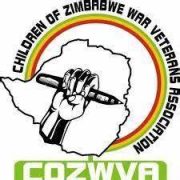A number of journalists from online media houses have been taken through by the Centre for Conflict Management Trust (CCMT) on what constitute conflict sensitive reporting and how it is relevant to debunk myths around Covid-19 infections and vaccination.
Speaking during the virtual training, CCMT representative, Richard Chere taught journalists on how to address disinformation and misinformation in the wake of the Covid-19 pandemic.
“What is currently obtaining in this Covid-19 pandemic is that there is actually lack of knowledge on the virus this is because of disinformation, misinformation and mal-information
“This is why conflict sensitive reporting becomes key for journalists to reflect and inquire on available information to strike balance in their reportage,” said Chere.
The training was facilitated by the Zimbabwe Online Content Creators (ZOCC) on the 16th of September, which ran under the theme ‘Conflict Sensitive Reporting Training: Debunking Disinformation on Covid-19’
On the same meeting, Chere also taught the attended journalists from ZOCC that, they should consider ethnic, tribal and tribal when reporting conflict sensitive issues.
“As journalists you need to take into account when reporting and these include relationships, interest, value, ethnic, tribal, cultural and traditional among many others,” he added.
He also said journalists are the peace-keeper in the process of reporting conflicts by helping people understand each other’s values, broadening the search for solutions, avoid labelling and watch the language.
Journalists need to consider the following strategies when practicing conflict sensitive reporting ;profiling peace-makers or key people in the process, joint interviews, exchanging questions, asking the same questions of all parties, helping people understand each other’s values, broadening the search for solutions, avoid labelling and watch the language,” he said.





Comments